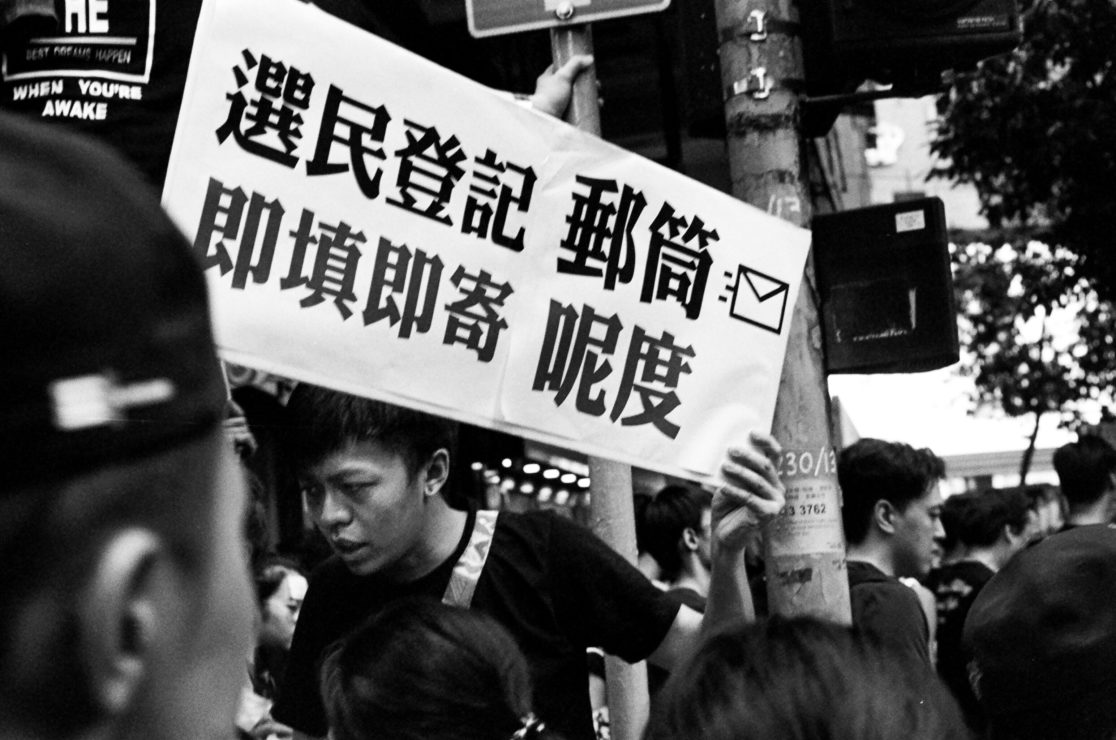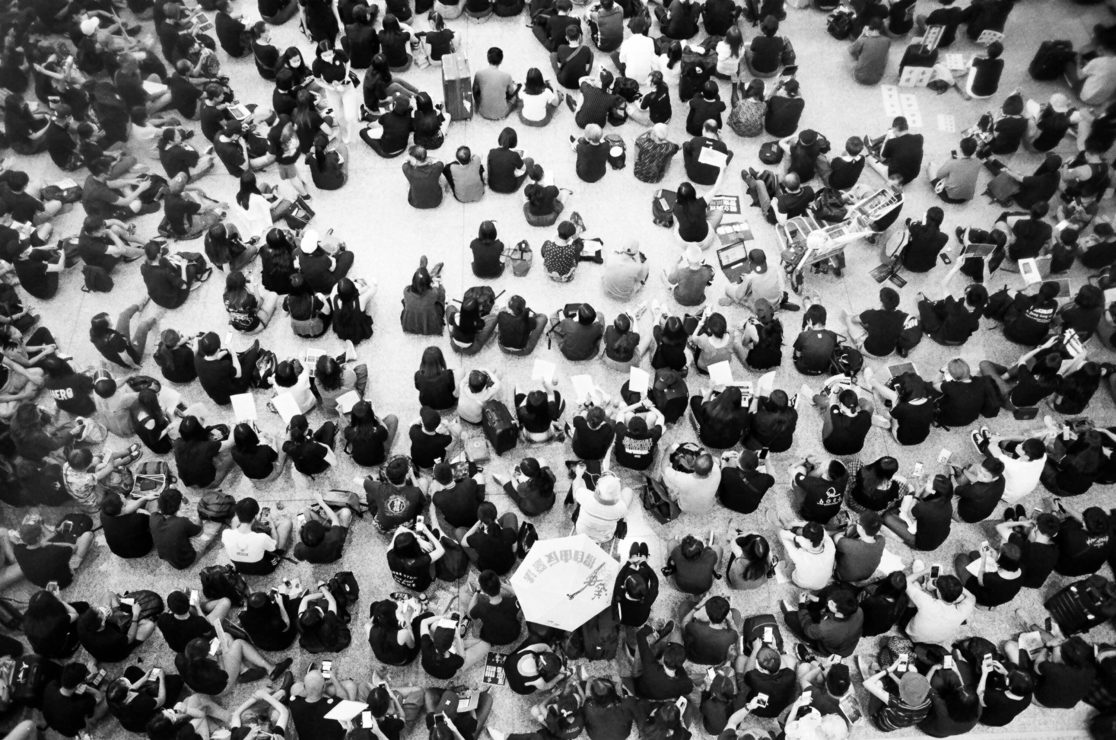While we worry about activism dying during summer months, it’s been a summer of dissent for students in Hong Kong

UVic students have a long and historic tradition of stickin’ it to The Man. Student activism will inevitably sweep across campus again in the upcoming year — but over in Hong Kong, activism doesn’t take a summer break.
The Martlet’s final editorial of Volume 71 warned of the likely slump in student activism during the summer months. Student activism on campus was exceptionally high last year: campaigns such as such as Stop Starbucks and Divest UVic showed a visible presence on campus through guerrilla chalking campaigns, and other protests against international student tuition fee increases even saw students briefly take over the UVic Senate chambers and blockade university administrative buildings in acts of defiance.
But students headed back home, diverted their attention to the summer, or jetted off on vacations elsewhere.
Starbucks is opening on campus this month, the tuition increase still happened, and the university has still not divested from fossil fuels. UVic’s decision over the summer to reverse plans for graduate student housing downtown in favor of building a hotel went uncontested. Student activism over the summer dwindled into a murmur with only token resistance in light of questionable university governance.
In Hong Kong, the opposite is happening. Students have spent their summer on the streets in a fight to retain their freedoms and rights — braving the sweltering sub-tropical heat in unprecedented numbers and intensity. In their “Five Major Demands,” the protestors called for the withdrawal of an extradition law and to hold the government and the police force accountable for their actions. Although these events have involved every demographic of society, students and student organizations have taken a central position in the widespread protests in Hong Kong. Students have become synonymous with the protests as young, university-age individuals are frequently seen on the very front of protest lines. For the past 13 weeks, they have faced off against an unchecked and increasingly brutal police force, on top of multiple triad attacks.

Student unions in Hong Kong have mobilized en masse to support the movement. Many students walked under student union and course union banners in unprecedented million-strong marches. Student unions fundraised and coordinated truckloads of gas masks and protective gear when the government turned to tear gas and non-lethal ammunition instead of policy and communication. When protests intensified, they also set up legal defense funds in preparation for arrests. Student organization has become a key tool of the resistance and mobilization not just inside campuses, but in the wider community.
The summer is almost over, but what is happening in Hong Kong isn’t over yet. Most student-led orientation camps in Hong Kong have been cancelled this year as their energies are refocused outwards, while some have chosen to utilize the politically-infused orientation culture to turn parts of the orientation into solidarity rallies for the protests. The atmosphere there is incredibly different: the major worry is that activism will die down as classes start as students focus on school, instead of the other way round.
UVic is ripe with opportunities for you to get involved and engaged — but at the same time, so many students let those opportunities just pass by. A university is simultaneously an ivory tower of academia and privilege and an incubator where people learn how to question the very political and economic systems that hold oppression in place. Universities remain one of the few places where organized advocacy movements can operate and come into existence with relative ease.
While the issues we face at UVic may look quite different from our fellow academics in Hong Kong, they share the same roots: we have a collective responsibility to look at our institutions with a critical eye, and to take a stand for our rights. Can we really afford to stay ignorant and look on with apathy at the very institutions that influence so much of our lives? The choice is yours.







